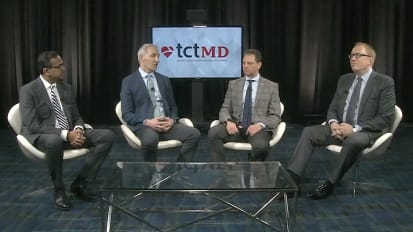Habib Samady, MD
Professor of Medicine, Emory University School of Medicine
Director, Interventional Cardiology, Emory University Hospitals
Director, Emory Cardiovascular Imaging & Biomechanical Core
Laboratory, Emory University School of Medicine

Training
MEDICAL SCHOOL
University of Sheffield, South Yorkshire, England
INTERNSHIP
Royal Hallamshire Hospital, Sheffield, UK
RESIDENCY
- Kings College Hospital, London, United Kingdom
- Lodge Moor Hospital, Sheffield, England
- University of Connecticut Health Center, Farmington, CT
FELLOWSHIP
Yale-New Haven Hospital, New Haven, CT
Professional Memberships
- American College of Cardiology
- American Heart Association
- American Society of Nuclear Cardiology
- Society of Cardiac Angiography and Intervention
Languages spoken
- French
- Persian
Honors & Awards
Cardiology Fellows Abstract Award
Bristol-Myers Squibb, American Heart Association, 1997
Faculty Teaching Award
University of Virginia Department of Internal Medicine, 2002-2003
J Edwin Woode Jr. MD Teaching Award
Cardiovascular Division, University of Virginia, 2002-2003
Major Publications
- Lack of Improvement of LVEF after Bypass Surgery In Patients with Severe Ischemic Dysfunction Is not Associated with Worse Outcome. Circulation,100: 1298-1304.
- Percutaneous treatment of focal vs diffuse in-stent restenosis: A prospective, randomized comparison of conventional therapies. Catheter Cardiovascular Intervention,61(3):344-9.
- Fractional Flow Reserve: Critical Review of An Important Adjunct to Angiography. American Heart Journal ,Vol. 93, 9; Pages 1102-1106.
- Recent Myocardial Infarction Does Not Limit the Utility of Fractional Flow Reserve for the Physiologic Assessment of Lesion Severity. American Journal Cardiology,Vol. 93, 9; Pages 1102-1106.
- Coronary flow reserve abnormalities in patients with diabetes mellitus who have end-stage renal disease and normal epicardial coronary arteries.. American Heart Journal,147(6):1017-23.
- Electromechanical Mapping identifies Improvement in Function and Retention of Contractile Reserve After Revascularization in Ischemic Cardiomyopathy. Circulation,110;2410-2416.
- Comparison Between Visual Assessment and Quantitative Coronary Angiography Versus Fractional Flow Reserve in Native Coronary Narrowings of Moderate Severity. American Journal Cardiology,90:210-215.
- Coronary Collaterals, Stenoses, and Stents: Is a New Era in Physiologic Assessment in the Catheterization Laboratory Arriving? . Journal of American College of Cardiology,Vol 40, No.9:1551-1554.
- Coronary Pressure Measurement After Stenting Predicts Target Vessel Revascularization at Follow-Up: A Multicenter Registry. Circulation,105:2950-2954.
- Electromechanic Mapping for Detection of Myocardial Viability and Ischemic in Patients with Severe lschemic Cardiomyopathy. American Journal Cardiology,91:807-811.
- Fractional Flow Reserve Compared to Intravascular Ultrasound Guidance for Optimal Stent Deployment. Circulation,104:1917-1922.
- Incremental Value of Combined Perfusion and Function Over Perfusion Alone by Gated SPECT Myocardial Perfusion Imaging for Detection of Severe 3-Vessel Coronary Artery Disease. Journal of American College of Cardiology,42:64-70.


